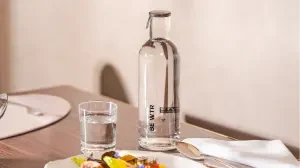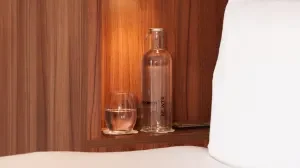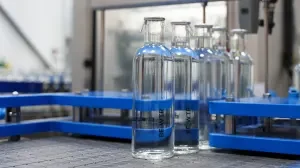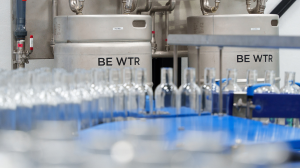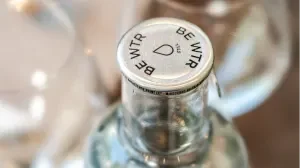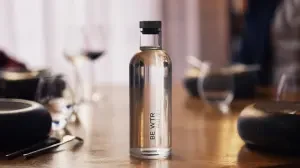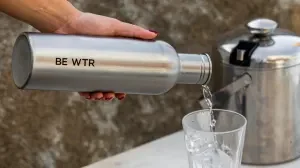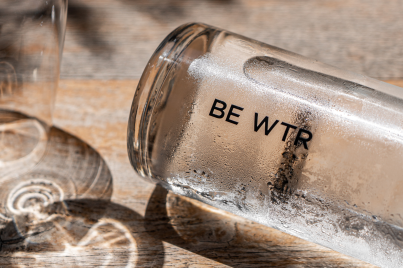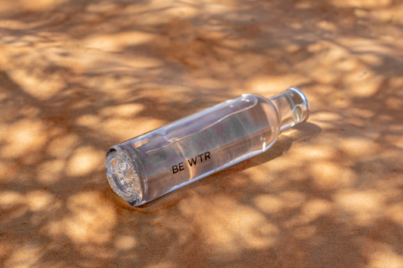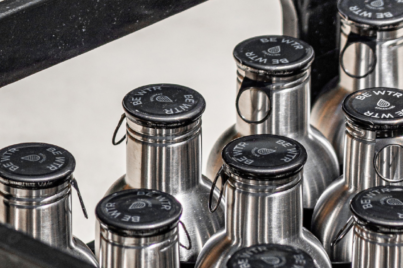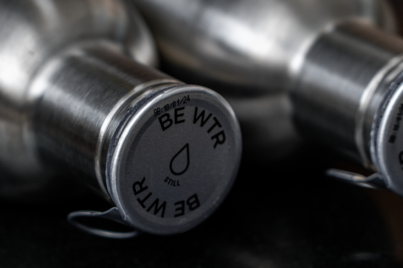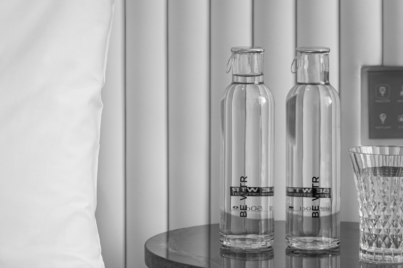#BE WTR stories
Over to the hygiene experts: Improving water hygiene and food safety in hospitality
12 February 2024, 7:00 GMT
By BE WTR
Apart from being a utility to serve operational needs, water is an important raw material in food and beverages and a life sustaining product for drinking purposes. This qualifies water as a food and thus the principles of food safety must be applied to water systems as well. Hence hazard prevention in water from infectious microorganisms, chemicals, particulates, etc. is paramount to ensure the integrity of water for use and/or direct consumption. Discover one of the expert when it comes to hygiene and food Safety: Nina Da Costa (Diversey’s Consulting Manager- MENA).

Compromised water quality and safety standards can adversely impact consumer health and the business reputation apart from attracting legal repercussions.
What makes Diversey an expert in this field?
Diversey is a 100-year-old organization with proven leadership and expertise in providing premium hygiene solutions and cutting edge technologies which are innovative, sustainable and integrated to the needs of the organization. Our expertise in hygiene solutions extend into hospitality, food & beverage, water treatment, floor care, laundry hygiene and infection prevention just to name a few.
Why is food safety and hygiene important when you talk about water?
Apart from being a utility to serve operational needs, water is an important raw material in food and beverages and a life sustaining product for drinking purposes. This qualifies water as a food and hence the principles of food safety must be applied to water systems as well. Hence hazard prevention in water from infectious microorganisms, chemicals, particulates, etc. is paramount to ensure the integrity of water for use and/or direct consumption. From a general consumer perspective, water must be safe, fresh and great tasting.
Are there any challenges that can compromise water safety in bottled water operations at the customer premises?
Water safety concerns leading to product contamination or microbial growth in the product can arise from any of the following factors: poor bottling plant design, poor operational process design, manual handling of caps and capping processes, poor food handler habits and behaviours, inadequate cleaning or disinfection, people incompetence and poor on-the-job training, inability to handle machine breakdowns and equipment downtime, inability to manage an environment free from pests, dust, unwanted materials, etc. small, cramped spaces, lack of clearly defined local regulations, lack of reliable water testing facilities and poor record keeping.
What can happen if you don’t take water hygiene seriously?
Compromised water quality and safety standards can adversely impact consumer health and the business reputation, not to mention the legal repercussions. Poor water quality can also affect the shelf life of the water, taste and freshness, and lead to customer complaints. Overall, managing water systems poorly can also affect the operational efficiency of the bottling plant, which is key for a profitable and sustainable operation.
As a potential buyer/client, what do I need to know before making my choice?
Clients must devise and implement mechanisms to objectively review the technicalities of the business arrangements and financial viability, bottled water plant and process design, knowledge transfer and training of relevant employees on safe product handling, after-sales support to facilitate troubleshooting and emergencies, liability ownership should a product fail, key eco-sustainability markers, market recognition and customer references, to name a few. Anticipating and managing consumer concerns is critical as they are now offered ‘inhouse bottled water’ over the conventional ‘branded commercially packaged drinking water’ perceived as a safer option.
What is ‘premium’ when it comes to this field of water bottling operations?
The ‘premium’ elements of such an operation are centred around the level of detail with respect to the process design, raw materials and the technology. Use of a two-stage filtration technology to remove the smallest microorganisms, including viruses, odour, taste and colour in water; use of wider-necked bottles to facilitate cleaning; superior pressurised cleaning and disinfection systems; use of a ‘clean room’ concept ensuring pressurised bacteria-free air from bottle/cap cleaning to filling and capping to prevent airborne contamination; single-use caps with hermetic (air tight) seals offering zero contamination risks post capping and storage and addressing consumer concerns are some of the criteria clients need to consider.
Are there any rules/regulations that I as a client must know about?
The client must fully understand the local legal requirements for plant commissioning and operations, international regulations and industry best practices. Irrespective of regulations, the client must demonstrate an understanding of the plant and process features, the associated benefits, and the risks so that they can invest prudently and partner with the right bottled water service providers who can support their HACCP and sustainability objectives.
Why has Diversey chosen to partner with BE WTR?
As an organization, Diversey would choose to partner with those who demonstrate business leadership, environmental stewardship, and the commitment to protecting the most important asset, human life. This partnership aims at resolving several concerns highlighted earlier. With BE WTR investing in the plant and renting the workspace for the client, there is a zero-capex investment for the customer and zero liability for the equipment or the product failure.
BE WTR uses a science-based HACCP approach to manage the day-to-day technicalities and food handlers in a controlled working environment, while using advanced features as described previously. Clearly, BE WTR offers a positive return on investment by keeping the F&B revenues stable, even though the cost of the free bottles increases in the guest rooms.
While assuring a 90% reduction in carbon emission with the use of glass bottles, it must be noted that the reuse is allowed for ‘100s of cycles’ rather than just a few. The microbiologically validated shelf life is of 6 months rather than 3 days, largely due to the hermetic bottle sealing and human touch-free technology in the critical high-risk zones.
What are the strengths of the collaboration between BE WTR & Diversey?
We are both leading industry experts in a joint mission to lead and benchmark innovative and cost-effective sustainable business strategies that will delight our business partners and enhance their water safety and sustainability goals, while they continue to invest into, manage andgrow profitable businesses and responsible individuals.
Discover our systems
A choice of beautiful, functional, hygienic dispensers with adapted capacity to fit any use, from small office to high volume restaurant.
